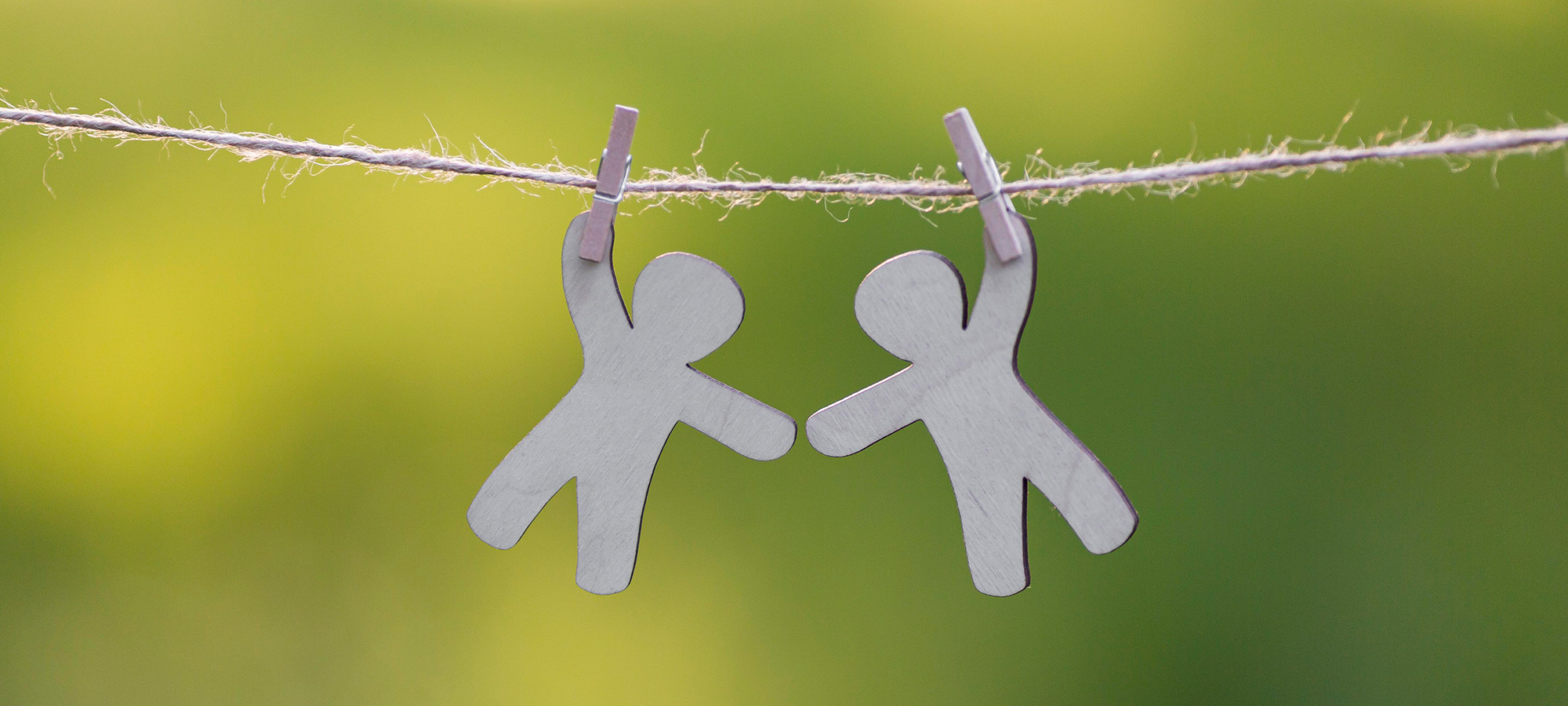
Passion and Purpose
Imagine loving your job — like, really loving your job. For the majority of Americans, a job is simply what they do to pay the bills, but for those who are lucky to do what they love, a job can feel less like work and more like personal fulfillment — a passion, even.
For Brijet Beazer, Isabelle Pack and Eric Olson, three graduate students in the School of Social Work at the University of Arkansas, that passionate feeling is their reality
“I fell in love with it,” Beazer says of her work. “I knew this was what I should be doing all along.”
There’s a reason why these students love what they do — they’re doing their part to help others and they’re also being supported by an outstanding program that is teaching them how to make this desire into a life-long career.
“Life is just real tough,” Olson says. “A social worker’s job is to help and bridge those gaps — to facilitate connections and to care and to be empathetic. We’re not all numbers. Life has an experience to it, and every social worker’s goal going in is to reduce as much suffering as possible. We want to make life a little more livable and less burdensome and stressful.”
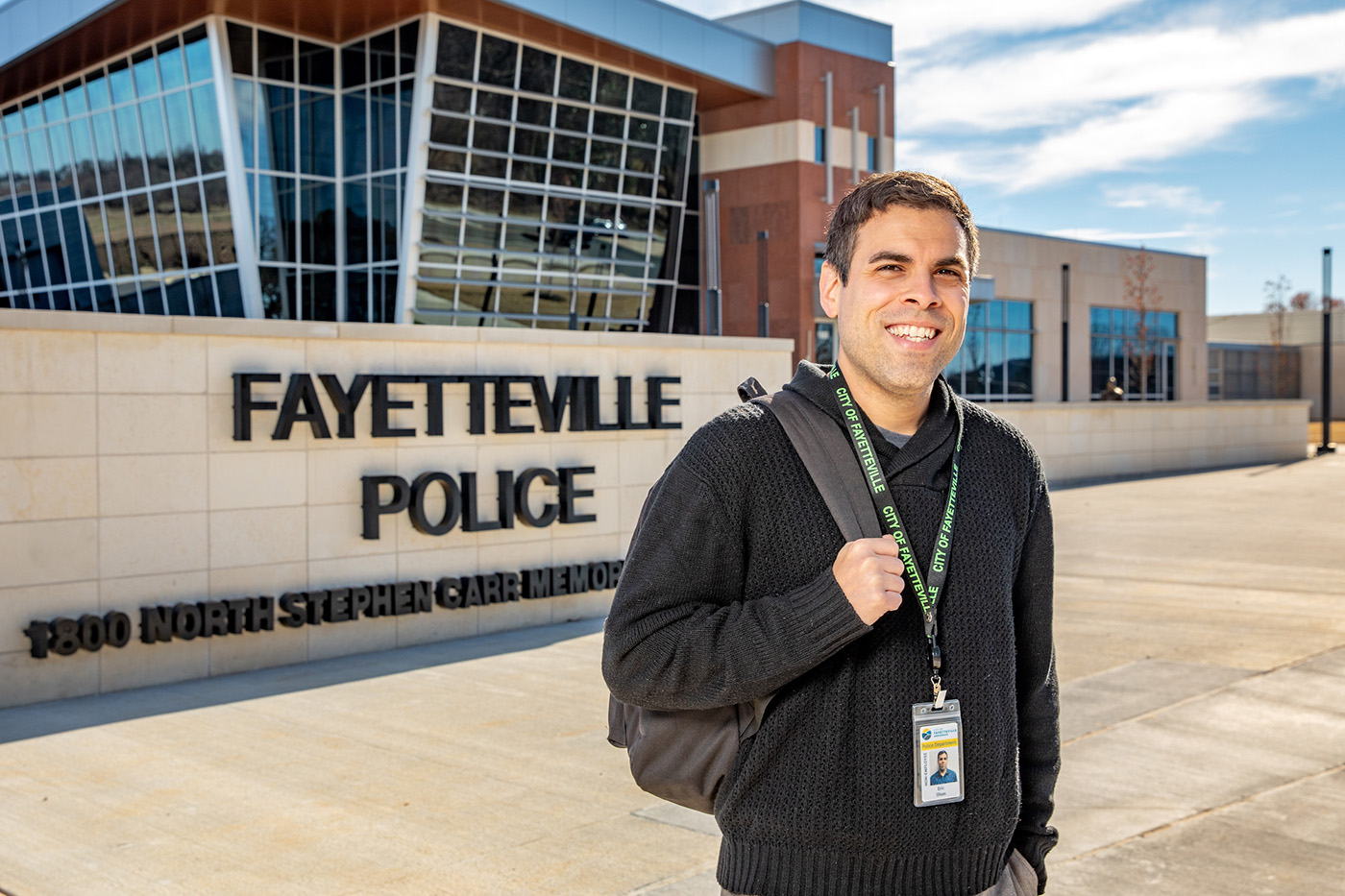
Formed in 1940, the graduate program for the School of Social Work, part of the Fulbright College of Arts and Sciences, is one of the oldest social work programs in the United States. It provides ample financial support to its students while also boasting an impressive 99% graduation rate. Thanks to the multitude of grants the school has received, 90% of students in social work master’s program receive funding — often in the form of stipends — to support their education.
 According to the Association of Social Work Boards, the national 2022 pass rate for
master’s students taking their social work licensing exams was 72.1%, compared to
the U of A’s pass rate of 95.1%.
According to the Association of Social Work Boards, the national 2022 pass rate for
master’s students taking their social work licensing exams was 72.1%, compared to
the U of A’s pass rate of 95.1%.
Ready to Work
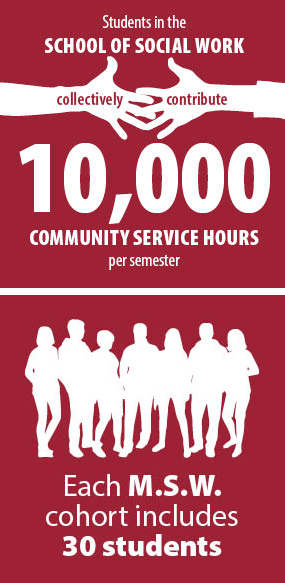
Beazer, Pack and Olson each came to the field in different ways but have all found personal fulfillment in what they’ve chosen to do.
“When I was younger, social workers were helpful to me and my family,” she says. “I want to be that person for another kid.”
Olson was introduced to the idea during the COVID-19 pandemic, and when he started investigating the university’s program, he knew this was the path he wanted to take.

As students in the U of A’s graduate program, each has the opportunity to practice social work in the community and apply what they’re learning in the classroom to real-world experiences. The school offers a robust selection of field internship possibilities in a variety of settings — including behavioral health organizations, hospitals, medical clinics, residential treatment facilities, school-based social work clinical programs, child welfare services and more — to ensure graduates are workforce-ready.
Most U of A social work graduate students also receive double the average amount of service hours, preparing them for employment opportunities beyond graduation.
Beazer completed internships at the Veterans Administration Hospital and the Schmieding Center for Senior Education; Pack gained experience at the Fayetteville Diagnostic Clinic; and Olson worked with the Fayetteville Police Department.
Beazer shares, “During my internship, I participated in helping a veteran experiencing homelessness find housing through the Housing and Urban Development/Veteran Affairs Supportive Housing program. Seeing the positive change in his life, from living on the streets to having a small apartment, made me realize I’m in the right profession. Helping others is what matters most to me.”
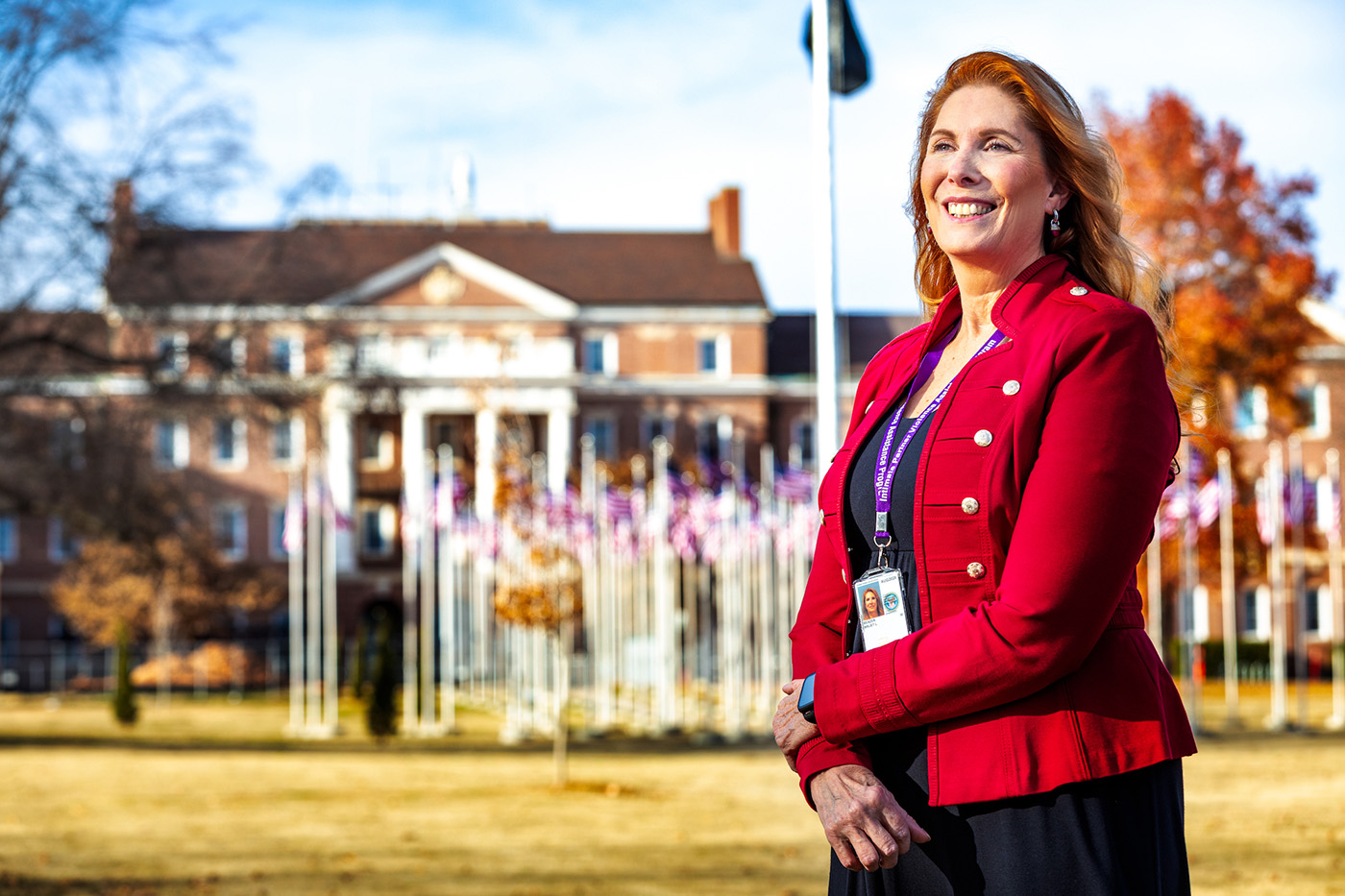
“The experience has been invaluable,” Olson says of his internship. “When you’re in the field responding to a situation, people are going through real-life situations that you have to deal with. It’s a fulfilling experience to interact with the world.”
Pack, who originally wanted to be a teacher, says she would now love to work as a school social worker through an agency or district. But the more time she spends in internal medicine through her internship, the more she realizes she would be happy with that track as well.
After completing her internships, Beazer says her long-term goal is to effect policy change.
“People don’t understand all the opportunities that are available — it’s bigger than just being a therapist,” says Beazer. “That’s what’s appealed to me — the different options and doors that opened. I will probably stay in Arkansas after I graduate; there’s a good incentive to stay. I’ve lived here before, and the longer I’m here, the more I’m developing career connections and friendships.”
MEETING A NEED
Not unlike many of their cohort peers, Beazer, Pack and Olson are all recipients of financial support from the U of A program. This makes a tremendous difference for graduate students, who often find themselves covering the cost of living, daycare, study materials and more while they’re in school. Students receiving scholarships report that the financial support not only allows them to stay in school and pursue their career aspirations but also provides more time to focus on studies and improves their overall state of well-being.
“Not only do these stipends help meet students’ basic needs, but they enrich the activities we can provide that bridge academic experience and community or conference opportunities,” said Ananda Rosa, field education program director and clinical associate professor.
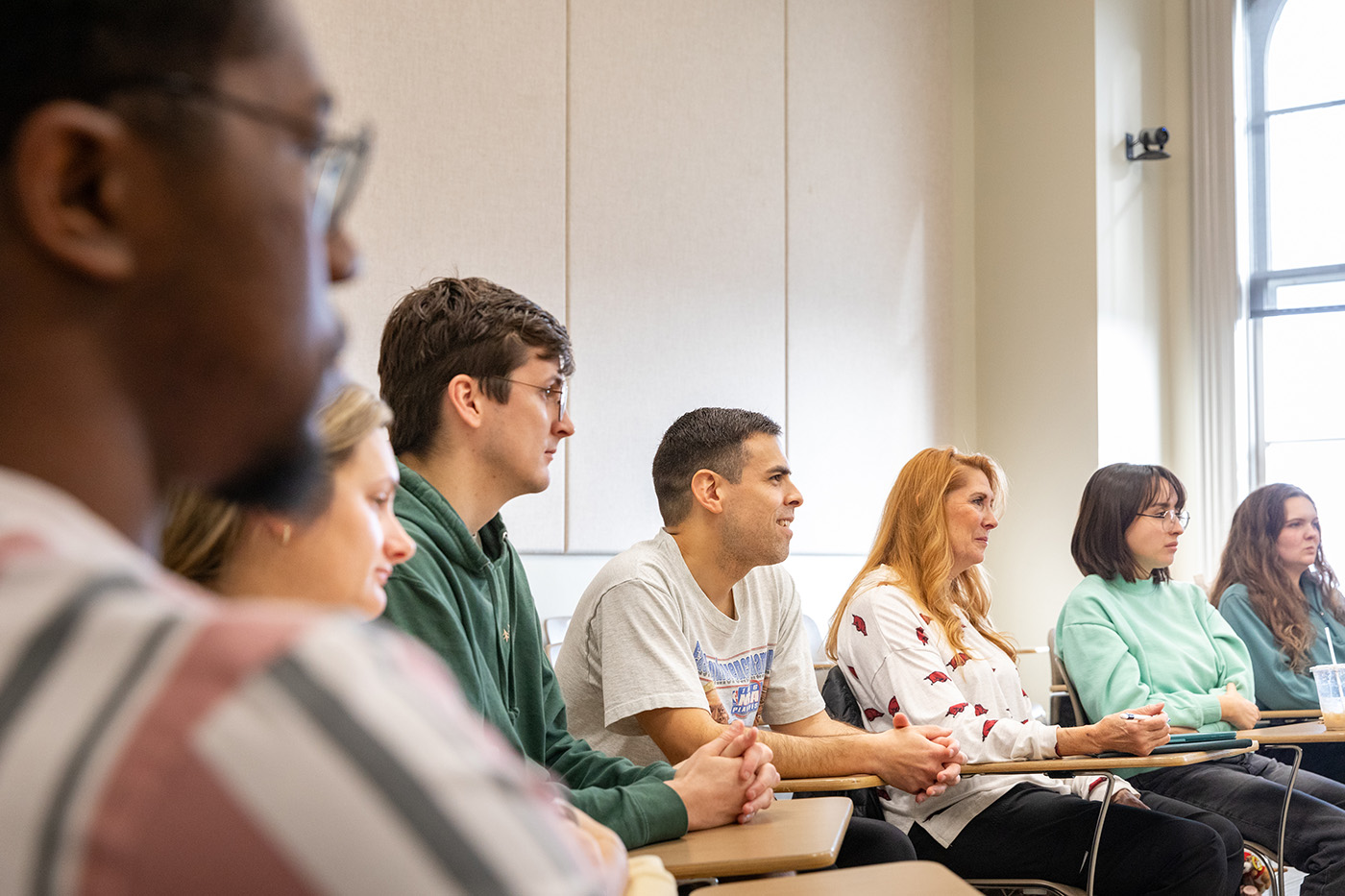
Marcia Shobe, professor in the School of Social Work, says, “As someone who has worked in these communities for years, and experienced financial barriers to higher education myself, I have observed the mental shift that economic assets can provide to a student and their family. Growing up, we were poor, so I understand how these families think and want to help them see education as a possibility.”
Shobe, along with professors Rosa and Yvette Murphy-Erby, takes the lead on submitting funding proposals for the grants to assist their students. As field education director, Rosa then collaborates with students to find a fit with their academic and practice interests and with the needs of the community to place them in field internships, allowing students to integrate their coursework with real-life social work practice opportunities under the supervision of a licensed social worker.
Arkansas is a very high-need area for social workers, which, combined with student need, helped federal officials to understand the importance of these grants for our graduate students,” Shobe says.
 Shobe, Rosa, and Murphy-Erby have generated more than $6 million in grants to
support School of Social Work students in recent years, in addition to collaborating
with
colleagues on millions more in stipend awards for graduate students.
Shobe, Rosa, and Murphy-Erby have generated more than $6 million in grants to
support School of Social Work students in recent years, in addition to collaborating
with
colleagues on millions more in stipend awards for graduate students.
Murphy-Erby adds, “All it takes is a small investment in a student to see major changes in how they see their future. This relieves student worry and allows them to return to areas of need where there are ample job opportunities.”
Pack, a recipient of an HRSA scholarship, says the support has been helpful to her and her family: “It’s such a game-changer. I’m very thankful.”
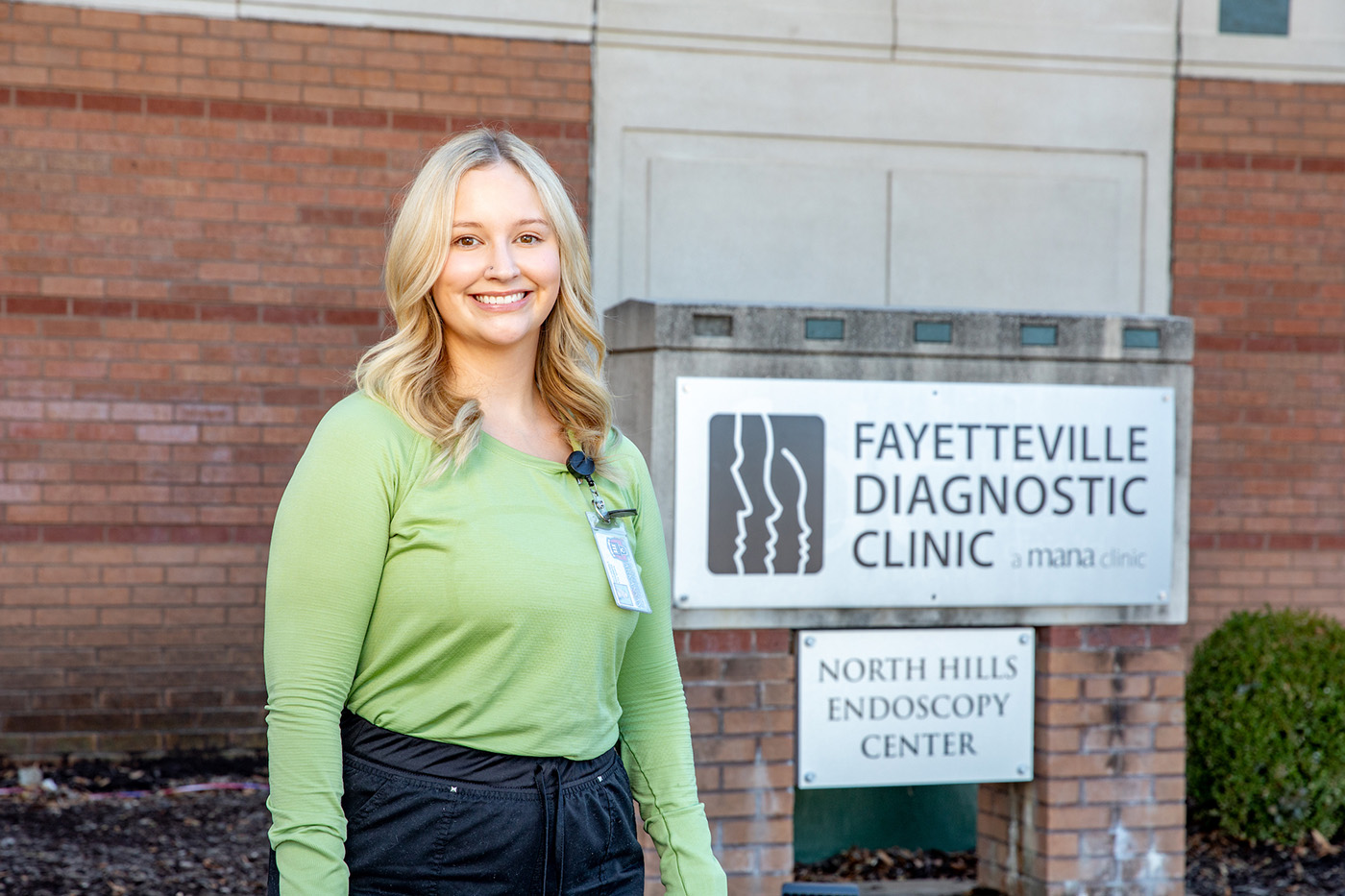
Future Connector
Whether pursuing work in a private practice or joining a team at a regional hospital, these students will have options. The demand for social work isn’t likely to decline in the future, and job prospects for graduates remain encouraging.
“I had no idea what a social worker was before I joined the program,” Olson says. “But it’s such a broad field. You could literally do anything. It’s a bridge that ties any institution to people. It’s the connector between people and their needs.”
“Any problem you have, there’s a social worker who will help you,” agrees Pack.